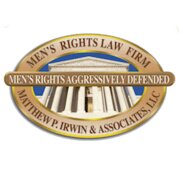Best Adoption Lawyers in Cape Coral
Share your needs with us, get contacted by law firms.
Free. Takes 2 min.
Free Guide to Hiring a Family Lawyer
List of the best lawyers in Cape Coral, United States
About Adoption Law in Cape Coral, United States
Adoption in Cape Coral follows Florida state law and is administered through local courts and state agencies. Cape Coral is in Lee County, which is part of the Twentieth Judicial Circuit of Florida. Whether you are pursuing a private placement, stepparent adoption, agency adoption, foster-to-adopt, relative adoption, or an international adoption, the process involves legal steps that typically include a home study, background checks, consent or termination of parental rights, and a finalization hearing in court. Federal rules and interstate agreements can apply in some situations, so adoptions that cross state or national borders require additional compliance.
Why You May Need a Lawyer
Adoption often involves legal rights and deadlines that affect parents and children permanently. You may need a lawyer to:
- Explain the different adoption options and recommend the best route for your situation.
- Prepare and file petitions, consents, and court paperwork correctly and on time.
- Represent you at hearings where parental rights are terminated or contested.
- Handle complications such as unknown or unlocatable birth parents, disputed consent, or prior custody orders.
- Navigate interstate or international requirements, including the Interstate Compact on the Placement of Children and foreign adoption regulations.
- Ensure compliance with home study, fingerprinting, and criminal-record requirements and advise on eligibility issues.
- Negotiate adoption agreements and, where permitted, advise on financial and ethical issues tied to private placements.
Local Laws Overview
Key aspects of local and Florida law that affect adoption in Cape Coral include:
- Governing statutes - Florida Statutes Chapter 63 contains the primary rules for most adoptions, including consent requirements, petitions, and finalization procedures. Child welfare and dependency matters are addressed in Chapter 39.
- Court jurisdiction - Adoptions are finalized in the circuit court. Cape Coral residents will work with the Twentieth Judicial Circuit - Family or Juvenile division as required for the case type.
- Consent and termination - Adoption requires either the voluntary consent of legal parents or a court-ordered termination of parental rights for reasons set by law. There are strict procedures and timelines for valid consent and potential revocation periods in certain circumstances.
- Home study and background checks - A licensed agency or qualified social worker must complete a home study for most private and agency adoptions. Adoptive applicants must submit fingerprints and background checks.
- Stepparent and relative adoption - Florida law provides streamlined procedures for stepparent or relative adoptions in many cases, but they still require legal filings and, often, consent or termination of the noncustodial parent.
- Foster and DCF adoptions - Children in the foster care system are handled through the Department of Children and Families and its local offices. Adoption from foster care follows dependency court procedures and may involve the termination of parental rights through the juvenile court.
- Interstate and international rules - Placements across state lines must comply with the Interstate Compact on the Placement of Children. International adoptions must meet U.S. federal requirements and the laws of the child s country of origin in addition to Florida law.
- Special protections - Laws such as the Indian Child Welfare Act apply when a child has Native American heritage. Other federal protections and immigration rules may affect international adoptions.
Frequently Asked Questions
How do I start the adoption process in Cape Coral?
Start by determining what type of adoption you want - private, agency, stepparent, relative, foster-to-adopt, or international. Contact a licensed adoption agency or a family-law attorney experienced in adoption to discuss eligibility and required steps. You will typically need to complete a home study, obtain fingerprint-based background checks, and begin the necessary court filings in the Twentieth Judicial Circuit.
How long does adoption take?
Timelines vary widely depending on the type of adoption. Private adoptions can take a few months to over a year. Foster-to-adopt cases depend on the dependency timeline and any termination of parental rights proceedings and can take a year or longer. International adoptions depend on foreign-country processes and federal immigration procedures and often require the most time. An attorney or agency can give a better estimate based on your chosen path.
What does adoption cost in Florida?
Costs vary by path - agency fees, home study fees, attorney fees, court costs, and travel expenses for international cases all factor in. Private adoptions may include additional placement or counseling costs. Foster-care adoptions often have lower out-of-pocket costs and may include subsidized assistance. Get an itemized cost estimate from any agency or attorney you consult.
Can a single person or a same-sex couple adopt in Cape Coral?
Yes. Florida law permits single adults and same-sex couples to adopt. Eligibility is determined by the same standards applied to any adoptive applicant, including suitability, home study, and background checks.
What is a home study and who performs it?
A home study is an assessment of an adoptive home, family stability, finances, background, and readiness to parent. It includes interviews, references, a home visit, and verification of criminal background checks. Home studies are performed by licensed adoption agencies or qualified social workers approved under Florida rules.
Can a birth parent change their mind after signing consent?
Florida law sets specific rules about when consent to adoption may be revoked. In some situations there is a short revocation period after a signed voluntary consent, while other consents given in open court or after certain procedures are final. Because timing and the exact circumstances matter, consult an attorney promptly if revocation or disputed consent is an issue.
How does a stepparent adoption work?
Stepparent adoption typically requires that the noncustodial biological parent s rights are terminated by consent or by court order. The stepparent and custodial parent file a petition in circuit court, and the court will determine whether adoption is in the child s best interest. The process can be expedited when the absent parent voluntarily consents or is found unfit.
How do I adopt a child from foster care?
Contact the Florida Department of Children and Families or the local child welfare office to express interest in adopting from foster care. Prospective adoptive parents must complete training, a home study, and licensing steps where applicable. If parental rights are terminated in dependency court, the child may become available for adoption. Subsidies or post-adoption assistance may be available in qualified cases.
Can I adopt a relative such as a grandchild or niece/nephew?
Yes. Relative adoptions are common and may have streamlined procedures, but they still require legal filings and a court s finding that the adoption is in the child s best interest. A home study may still be required. An attorney can help determine whether a simple custody change or full adoption is more appropriate.
Do I need to work with a local attorney or can I use an out-of-state lawyer?
You should use an attorney licensed in Florida and familiar with the Twentieth Judicial Circuit and Lee County practices for court filings and hearings. If your adoption involves another state or country, an out-of-state or international-adoption specialist may be needed in addition to local counsel to cover jurisdictional and federal requirements.
Additional Resources
Useful organizations and agencies to contact or research include:
- Florida Statutes, Chapter 63 - Adoption laws
- Florida Statutes, Chapter 39 - Child welfare and dependency proceedings
- Florida Department of Children and Families - local Lee County office and child welfare services
- Twentieth Judicial Circuit Court - Family and Juvenile Divisions
- Lee County Clerk of Court - Family Court filing and records
- Florida Bar Association - Family Law Section and Lawyer Referral Service
- Lee County Bar Association - local attorney resources
- Interstate Compact on the Placement of Children - for placements across state lines
- United States Citizenship and Immigration Services - for immigration issues in international adoption
- Indian Child Welfare Act resources - when a child has Native American heritage
- National and local adoption advocacy groups and licensed adoption agencies
Contact these offices to confirm current procedures, forms, and local contacts. When in doubt, consult a qualified adoption attorney.
Next Steps
Step 1 - Gather basic documents such as birth certificates, marriage or divorce decrees, proof of residence, identification, and any relevant custody or court orders. These will be needed for home study and court filings.
Step 2 - Decide which adoption route fits your situation and contact a licensed adoption agency or an experienced local family-law attorney to discuss options and receive a checklist of required actions.
Step 3 - Complete the home study, fingerprinting, and background checks. Start any required parenting classes or training if adopting from foster care.
Step 4 - Work with your attorney or agency to draft and file the petition for adoption and any related motions. Prepare for hearings by collecting supporting evidence and documents.
Step 5 - Attend the finalization hearing and obtain the adoption decree. After finalization, update the child s birth certificate and legal records as appropriate.
Remember - adoption alters legal rights permanently and can involve complex emotional and procedural issues. This guide is for informational purposes only and does not substitute for personalized legal advice. If you need help, schedule a consultation with a Florida-licensed attorney experienced in adoption law in Lee County and the Twentieth Judicial Circuit.
Lawzana helps you find the best lawyers and law firms in Cape Coral through a curated and pre-screened list of qualified legal professionals. Our platform offers rankings and detailed profiles of attorneys and law firms, allowing you to compare based on practice areas, including Adoption, experience, and client feedback.
Each profile includes a description of the firm's areas of practice, client reviews, team members and partners, year of establishment, spoken languages, office locations, contact information, social media presence, and any published articles or resources. Most firms on our platform speak English and are experienced in both local and international legal matters.
Get a quote from top-rated law firms in Cape Coral, United States — quickly, securely, and without unnecessary hassle.
Disclaimer:
The information provided on this page is for general informational purposes only and does not constitute legal advice. While we strive to ensure the accuracy and relevance of the content, legal information may change over time, and interpretations of the law can vary. You should always consult with a qualified legal professional for advice specific to your situation.
We disclaim all liability for actions taken or not taken based on the content of this page. If you believe any information is incorrect or outdated, please contact us, and we will review and update it where appropriate.









